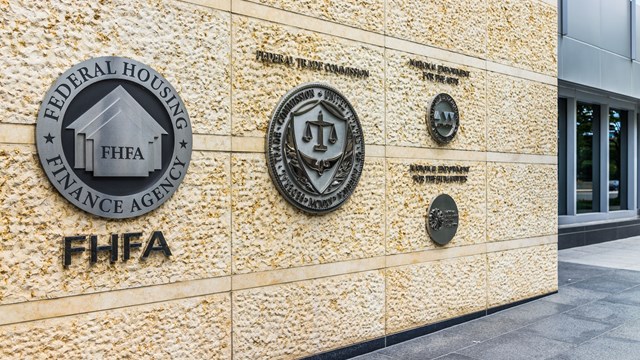While it’s generally understood how to employ the first two people – to call the accountant when bills are due and at tax time and the property manager pretty much all the time – rules for engaging the condo’s lawyer remain somewhat vague. For instance, exactly when should you contact your attorney? What is the best way to contract for legal services? And who should be pointperson for contacting the attorney?
When to Call?
While acknowledging that “there’s no established rule” for contacting the condo’s lawyer, Henry Goodman, Esq., says, “As soon as the board determines there is a possibility of a legal issue, they ought to call their attorney.” And potential legal issues can include “threats of a lawsuit, any claim that someone’s rights are being violated, any alleged breach of duty, and any claim of lost property,” says Goodman, principal of Goodman, Shapiro, & Lombardi, LLC, of Dedham, Massachusetts, and Providence, Rhode Island. It’s important to contact the condo’s attorney in such instances, because he or she can determine if it’s an issue that needs to be immediately reported to the insurerin order to avoid a later refusal to pay on a claim, says Goodman.
Also cautioning boards to call their attorney early is Joan Mueller-London, Esq., managing attorney with London & London in Newington, Connecticut. “I think too often boards tend not to deal with problems proactively and I would say, regretfully, they let a situation get to the point where by the time they contact counsel it becomes a more expensive problem because they weren'tmore proactive in the first place.”
Typical legal red flags that boards should respond to usually involve recurring complaints, says Mueller-London. “When one or more unit owners perpetually raise the same issue or have the same concern, it would be hard for the board to argue, ‘It is just this one individual.’ If the same issue appears time and again and it's difficult to resolve, I think that's a red flag that you [the board] had better articulate better what the policy or procedure is,” she says.
Boards that do call their attorney before things get out of hand can oftensave themselves some serious cash, chimes in Goodman. “It’s possible to nip that legal issue in the bud before it grows into a full-blown lawsuit, where you’re faced with large legal fees,” he says.
Pay-As-You-Go or Retainer?
While boards can often save money by calling their attorney early when problems develop, many hold back because they are afraid of unnecessarilydriving up legal bills, which bring to the fore the question of payment.
In general, there are two methods of payment – pay as you go (hourly), or a retainer (typically a flat monthly fee for many items, but with some at a reduced hourly rate).
According to Goodman, the best method of payment depends on the types and volume of legal problems a community may be facing. “The way it works out is that if the client is going to use us infrequently, they are better off with the hourly rate, as they don’t have to pay a monthly sum. But if they are going to use us a lot, they are probably better off with the monthly payment because they’re going to have savings, and there is a lot included in the monthly retainer,” says Goodman. One type of community that can generally benefit from a retainer arrangement, Goodman says, is a new one that is transitioning fromits developer and facing construction defect issues, financial irregularities, and scores of upset unit owners.
Wells, Maine, attorney Joseph Carleton says he infrequently uses retainers, and when he does, they are “very carefully drafted because attorneysdon’t want to feel like they’re on the hook answering an unlimited number of questions.” To put a cap on his consultation time, Carleton says his retainer agreements typically exclude litigation matters, which are added on at a pre-determined fixed hourly rate.
Goodman says he also excludes litigation-related matters and court appearances in his retainer contracts, but includes items such as telephone calls from the board, and reviewing condominium forms, documents, and contracts.
Goodman also notes that he typically includes in any retainer contract an opt-out clause where a board can change the terms of the contract from retainerto hourly with only 30 days’ notice.
Who’s Doing the Talking?
Another dilemma for a condominium board is who should contact the attorney regarding a legal problem –the property manager, the board president or some combination thereof?
For Carleton, the best answer is the simplest – just one person. “It’s alwaysa good idea to have one designated contact person. Many times it’s the board president; sometimes it’s the property manager. I always tell the board president that it’s essential to have only one contact person,” says Carlton. If it’s not clear who the designated contact is, says Carleton, “different people on the board can have their own agendas and different interpretations of things. You don’t want to have a lot of people with the ability to ring up the bill.”
Goodman says he also prefers a single person designated by the board, or a specified alternate if that person is not available. When get gets a call from a non-designated board member, Goodman says he tries to balance the caller’s concerns with the instructions from the board that he deal only with the designated person. “If we get a phone call from a board member who is not designated, we might at least listen to the question and find out if we have the authority to answer that question,” says Goodman. “On the one hand, we try not to cut out anybody in a position of authority; on the other hand, we try not to take sides when there are two conflicting parties –we prefer [to communicate with] the person who’s been designated by the majority to talk to because in fact all boards act by majority vote.”
What Lawyers Wish Board Members Knew
In addition to knowing when to call the attorney, a board should have some additional guideposts to follow.
Mueller-London says she wishes condo boards would make more of an effort to communicate with owners and keep better records when violationsoccur. “One instance is if a person is fined because they have a non-conforming screen door or something like that. They are new unit owners in the community, so they may not know the documents well enough to know that you just can’t put a screen door up. So they'll be fined for that and the case will eventually come to us, because they have accumulated all these fines and they haven’t changed the screen door.”
With better communication, however, Mueller-London says the problem could be avoided or, at least, the condo’s legal position strengthened. “At the root of the problem is there is not enough clear-cut correspondence from the board to the unit owners saying, ‘If you need to put a new door on, here are the models that are acceptable, we will order them for you.’ Things like that can get out of hand pretty easily … At the end of theday, there's not enough clear written correspondence to the unit owners.”
Goodman says he wishes boards would not be penny-wise and pound-foolish and remember to contact their attorneys for advice in handling problems.
For instance, says Goodman, “In a condominium there was water damage to a unit which resulted in mold. Eventhough they complained several years ago, nothing was done. The attorney wasn’t called, the insurance company wasn’t called. Eventually, the unit owner sued for his losses, including health issues.”
Because the board sat on the case, the insurance company has now refusedto pay for the condo’s legal defense, says Goodman, resulting in a large unwanted exposure.
“Had we been notified of this at the beginning, we probably would’ve recommended quick mold remediationand getting a release [from the unit owner, stating the problem was fixed] which would have put an end to the claim,” Goodman says.
Carleton says boards could save a lot of money if they present their counsel with complete and updated condominium documents when the attorney is hired.
“It may be as high as 50% of the time, my new clients come in with documents the developer had given them 10 years ago, which might not be the same as the documents that were recorded at the registry of deeds. The board may not have a copy of the recorded amendments, or they may have amendments which they think were adopted, but in fact were never recorded at the registry of deeds, and therefore are not effective,” he says. Without access to updated documents, Carlton says, “if reference needs to be made to the documents for the answerto legal questions, then you’re [the condo’s attorney] going to come up with the wrong answer.”
For this reason, Carleton says, “My practice with a new client is to ask them for the documents that they have, then to do a title update to see what they have is right and sufficient. Many times there are amendments to the documents recorded in the registry of deeds that the present board members don’t know anything about.”
And as condo boards know all too well, lack of knowledge in legal mattersis something that can ultimately cost the association money.
Jim Douglass is the managing editor of New England Condominium magazine.







Leave a Comment